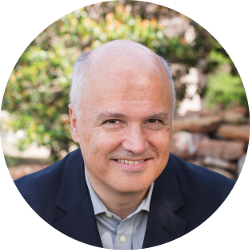Or is it “right or wrong?”
The overloaded “right” creates one of the great ambiguities in the English language.
Perhaps you’ve experienced something like this:
John: You said to turn left up here?
Jane: Right.
[John approaches the intersection, looks both ways, proceeds to turn right.]
Jane: [irritated] Why did you turn right! I said to turn left.
John: [exasperated] No, I asked if you wanted to turn left; you corrected me and said you wanted to turn right.
Jane: [insolent] No, I told you that you were right, we needed to turn left. I never said anything about turning right.
Software developers call this an “overload”; a symbol or operator is re-used for a different function. Used correctly, it is a powerful feature that enables the creation of elegant and maintainable software. Used incorrectly, it can be a nightmare. The most important rule when overloading an operator is that the functionality must remain consistent with the original meaning.
The problem here is that we’ve overloaded a word that indicates direction to also connote a moral judgment. This should never have been allowed to happen to the language. Direction, as a general principle, has no moral component. (In a specific context there may, in fact, be a correct direction and an incorrect direction. But as a general principle, this cannot be said.)
The real tragedy is that this wasn’t necessary. There are plenty of good words already available to assert that something is right correct.
Please use them. Let’s all agree to stop using “right” as an antonym for “wrong”. At least in contexts where it could be confused with direction.
Now, I know some of you have gotten ahead of me and are thinking to yourselves, “This is not the only place we’ve overloaded the word ‘right’ that clouds meaning.” And you would be correct.
We’ve also overloaded the meaning of “right” (and “left”) to connote political inclination. This started out innocently enough; the political “right-wing” was the party that was seated on the right-hand side of the congressional assembly, and the “left-wing” was the party that was seated on the left-hand side of the room. (This actually started in the late 1700s in France, but it’s also true of our congress here in the US.)
Simple enough. And part of me wants to leave it there, because given the status quo, my own personal political predilection has the benefit of being associated with the superior moral connotation.
But I think it’s unfortunate in this regard: it short-circuits debate. We don’t feel the need to defend our positions (or even really know why we believe what we believe). We’re “right”, after all. But those who don’t think like us aren’t persuaded to join our cause. They may not know what they believe either, but they’re smart enough to see that our sole defense is built on an accident of semantics.
So what are “right” and “left” in political terms? In this country, and at this point in history, “right” is generally associated with “conservative”, and “left” with “liberal” (or “progressive”, or “socialist”—the name is less important than the substantive beliefs).
Conservatives are generally in favor of remaining true to (conserving) the principles on which our country was founded. In general, these are the principles of individual freedom and limited government. The reason we chose to elevate these principles above other ideas that might be considered was derived from our belief that every individual human being is equally the pinnacle of God’s creation. (If you doubt that assertion, reread the preamble to the Declaration of Independence.)
Liberals are generally in favor of more government control and intervention. (If you disagree with this characterization, point to a liberal policy that contradicts it.) They believe this is the best path to equality.
Both sides want equality, but they disagree regarding what constitutes equality and how to achieve it. Liberals want equal outcomes, and see collectivism and government action as the most realistic path. Conservatives want equal opportunity. They see a role for government in ensuring a level playing field, but this role is limited to creating an environment where every individual has the freedom to play the game in whatever way best suits his or her unique talents and passions.
Let me repeat what I said earlier: Every. Individual. Human. Being. Is the pinnacle of God’s creation. I recognize that there’s a logical incongruity in that statement, but I challenge you to find a scripture that says God doesn’t see it that way. Mankind is the pinnacle of his creation, the only thing he created in his own image. And he didn’t just create Adam and Eve; he created each one of us individually. David says, “You knit me together in my mother’s womb. (Psalm 139:13b NIV)” He created each of us uniquely—we’re not all carbon copies of the same template. He considers each of us to be his children (in one sense, but not another—a topic for another time) and longs for us all to experience a restored relationship with him.
This nation was founded on these principles, and it was the first time in recorded history where a nation chose to elevate individual freedom above government control. When we talk about American exceptionalism, this is what we’re talking about. Not that Americans are better than everyone else, but that unfettered individual freedom would lead to a superior outcome for everyone in society.
It worked. And while it’s true that we’ve fallen far from this ideal, it is also true that even still people everywhere want to leave where they are to come here because of the prosperity that results from these principles.
What do you believe? Can you articulate why?
